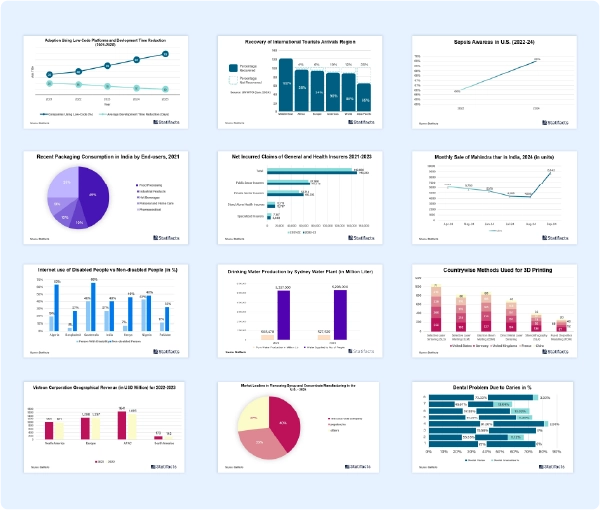The U.S. cell and gene therapy CDMO market size was exhibited at USD 3,019 million in 2024 and is projected to hit around USD 33,240 million by 2034, growing at a CAGR of 27.11% during the forecast period 2024 to 2034.
U.S. Cell And Gene Therapy CDMO Market Report Highlights
- The oncology segment dominated the U.S. cell and gene therapy CDMO market and held the largest share in 2024.
- The rare disease segment is anticipated to be the fastest-growing during the forecast period.
- The pre-clinical segment held the largest revenue share in 2023.
- The clinical segment is anticipated to be significantly growing during the forecast period.
- The cell therapy segment dominated the market and held the largest revenue in 2024.
- The gene-modified cell therapy segment is anticipated to be the fastest-growing during the forecast period.
The U.S. cell and gene therapy CDMO market refers to the production, distribution, and use of CDMO, which carries out the development of a drug API before manufacturing it. This accelerates the development of the product and ensures it meets the highest regulatory standards while maintaining efficient production timelines through our integrated global network of contract development and manufacturing organization (CDMO) facilities and testing sites.
By commissioning a cell and gene therapy CDMO, companies can streamline pharmaceutical formulation development and commercialization, enabling them to bring their products to market rapidly. This is specifically important in the gene and cell therapy space, where space is important for success. CDMO play an important role in cell therapy development by offering crucial expertise and infrastructure and expertise, demonstrated by recent therapy approvals. These factors drive the growth of the U.S. cell and gene therapy CDMO market.
By bringing together research and development with manufacturing processes, CDMOs can reduce complexities involved in product lifecycle management, ensuring smoother transitions from development to production. Outsourcing R&D and manufacturing activities to a CDMO can offer many benefits to pharmaceutical companies, including reduced turnaround times, access to expertise, the ability to avoid large capital investments, and location.
Increased R&D investments and funding in cell and gene therapies is a key trend in the pharmaceutical and biotechnology industries.
These CDMOs help drug developers successfully prepare for and execute clinical trials in several ways. By providing expertise in process development, CDMOs improve manufacturing processes to meet key regulatory requirements and produce high-quality therapeutic products. CDMOs can provide the required production capacity to meet market demand. It can assist in managing the costs associated with compliance by spreading them across multiple clients, making it more affordable for individual pharmaceutical companies. By reducing costs, accelerating timelines, and enhancing the precision of drug development, these innovations not only promise to enhance but also transform the pharmaceutical industry, driving the growth of the U.S. cell and gene therapy CDMO market.
Partnering with contract development and manufacturing (CDMO) brings together the expertise, resources, and experience necessary to guide these barriers effectively, enabling accelerated project timelines and cost optimizations. Clinical CRO and CDMO collaboration improves the regulatory and scientific expertise, which includes the potential to develop harmonized regulatory strategies across multiple functional domains, scalable production, properties, chemistry, manufacturing, and controls expertise, non-clinical development, clinical development, patient safety and monitoring, operational efficiency, quality assurance expertise, and patient and site coordination. These factors will help the growth of the cell and gene therapy CDMO market. Thermo Fischer Scientific launched AcceleratorTM Drug Development, a suite of expanded clinical research organization (CRO) and contract development and manufacturing organization (CDMO) services under its brand, in November 2024.
Artificial intelligence (AI) based predictive modeling capabilities empower CDMOs to optimize large molecule manufacturing processes by continuously monitoring and analyzing real-time data from production lines. AI systems can identify patterns and detect anomalies, allowing proactive troubleshooting and preventing costly production issues. AI allows automation of production lines, visual inspection, quality control, and processing. Artificial intelligence (AI) has the potential to revolutionize drug development through improved efficiency, accuracy, and speed. AI has the potential to shorten operational cycle times by increasing quality and reducing overall costs and raw material consumption. These AI integration beneficial factors will help the growth of the U.S. cell and gene therapy CDMO market.
Key factors for CDMO selection for cell and gene therapy manufacturing include the need for effective communication with CDMO for building success, the total cost of development and improvement, and the cost of production per GMP batch. Another parameter that must be considered is the physical location of CDMO, track of record in regulatory and compliance history, and technical expertise, which will help the growth of the U.S. cell and gene therapy CDMO market.

